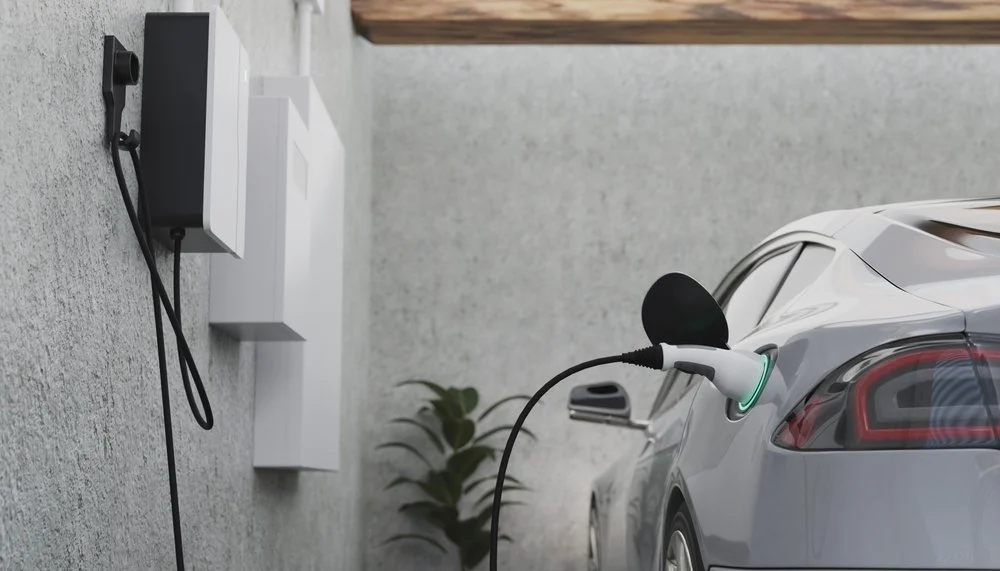How to Prevent Your Electric Car from Being Stolen - A Complete Security Guide
Source: Shutterstock
For years, many UK drivers have been running older petrol or diesel cars — the kind you wouldn’t think twice about leaving on the street overnight. But with the rise of electric car salary sacrifice schemes, more employees than ever are suddenly getting behind the wheel of high-value cars like Teslas, BMW i4s, or Hyundai Konas.
That’s an exciting leap — cheaper running costs, zero tailpipe emissions, and the thrill of driving something cutting-edge. But it also comes with new responsibilities. Electric cars are now prime targets for thieves, not only because of their resale value, but because of the technology inside them.
This guide takes you through everything you need to know about EV theft prevention: why electric cars are increasingly targeted, the most common theft methods, practical steps you can take today, and how salary sacrifice schemes like The Electric Car Scheme give you built-in protection and peace of mind.
Why Electric Cars Are Targeted
Electric cars are one of the UK’s fastest-growing car markets. According to the Society of Motor Manufacturers and Traders (SMMT), over 315,000 new EVs were registered in 2024 alone, many of them through company car and salary sacrifice programmes. With popularity comes risk.
Here’s why thieves are so interested:
1. High Resale Value
Unlike older petrol cars that depreciate heavily, EVs hold strong second-hand values. For instance:
A three-year-old Tesla Model 3 often resells for £20,000–£25,000.
Even smaller models like the Nissan Leaf maintain high demand because of their affordability and range.
Criminals know this — and they know parts like batteries, infotainment screens, and even charging cables are highly valuable.
2. Technology Appeal
Most EVs come with keyless entry, remote app controls, and advanced onboard systems. These make life convenient for drivers — but also create opportunities for tech-savvy thieves. Relay devices and OBD hacking tools are increasingly cheap and accessible online.
3. Export Market
Stolen EVs are often shipped abroad to markets where demand outstrips supply. This means cars vanish quickly after theft, making recovery harder unless you’ve fitted tracking technology.
4. Insurance Implications
Insurance companies have noticed. Some EVs are now placed in higher risk bands, which can mean bigger premiums. If you’re concerned about costs, see our guide: Are electric cars more expensive to insure?
Common Electric Car Theft Methods
Traditional theft methods still exist, but EVs are especially vulnerable to modern, technology-led attacks.
Keyless Theft (Relay Attacks)
One of the fastest-growing methods. Here’s how it works:
A thief stands near your house with a relay transmitter to capture your fob’s signal.
Another thief stands by your car with a receiver.
The car thinks the key is nearby and unlocks.
The entire process can take under two minutes.
OBD Port Hacking
All cars have an Onboard Diagnostic (OBD) port for mechanics to check systems. Criminals exploit this by plugging in a device that programs a new key. EVs with exposed OBD ports are especially vulnerable.
Traditional Break-Ins
Even with advanced systems, smashing a window to steal valuables inside remains common. Leaving laptops, chargers, or even high-value charging cables visible makes your EV a target.
Charging Cable Theft
Unique to EVs. Charging cables can cost £150–£400 and are often resold online. They’re especially vulnerable when charging overnight on a driveway or at public stations. Learn more in our beginner’s guide to EV charging.
Essential EV Security Measures
Now for the good news: simple, affordable measures can drastically reduce theft risk. Think of it as layering security — the more obstacles a thief faces, the less likely they are to target your car.
Immediate Actions
Faraday Pouches (£10–£20): Block signals from your fob to prevent relay attacks. Keep every spare key in one too.
Steering Wheel Locks (£30–£70): Old-fashioned but effective. Visible deterrents make thieves move on.
Smart Parking: Opt for well-lit areas or those covered by CCTV. If possible, park nose-in on your driveway to block easy tow access.
Technology Solutions
Ghost Immobilisers (£400–£600): Require you to enter a unique PIN (via steering wheel buttons or dashboard) before the car starts. Invisible to thieves.
GPS Trackers (£200–£400 + subscription): Some insurers offer discounts for cars with trackers, since recovery rates are far higher.
Dash Cams with Parking Mode (£100–£300): Record motion around your car and alert you instantly if tampered with.
Smart Alarms: Send push notifications to your phone if doors or windows are forced.
Home Security
Secure Charging Setup: Use lockable charging points, and keep cables out of sight. Check our EV charger installation costs for options.
Driveway Bollards (£150–£300): Physically prevent a car from being driven away.
CCTV & Security Lighting: Motion-activated systems both deter thieves and provide evidence for insurance claims.
Model-Specific Security Tips
Different EVs come with different security features. Salary sacrifice drivers should make the most of them:
Tesla
Sentry Mode: Records suspicious activity using cameras.
PIN to Drive: Prevents driving without a unique PIN.
Tesla App: Lets you locate, lock, or disable the car remotely. See more in our Tesla salary sacrifice guide.
Nissan Leaf
Ensure regular software updates, as Nissan frequently patches vulnerabilities.
Consider a secondary immobiliser. More on our Nissan EV salary sacrifice page.
Hyundai Kona / Ioniq
Factory alarms are strong, but trackers add peace of mind.
Use the Hyundai BlueLink app to monitor vehicle status. Check Hyundai salary sacrifice.
BMW i4 / iX3
Enable ConnectedDrive theft alerts.
Use app-based live location tracking.
Insurance and Recovery
One of the biggest advantages of driving an EV through a scheme like ECS is the built-in protection.
Comprehensive Cover: Salary sacrifice car insurance typically includes theft, accidental damage, and breakdown cover.
24/7 Recovery: Many insurers can locate and recover stolen cars within hours, especially when GPS tracking is fitted.
This means that while prevention is the best defence, you’re never left exposed if the worst happens.
What to Do If Your EV Is Stolen
Speed is critical. Here’s what to do:
Call the Police Immediately (999 if in progress, 101 if after the fact). Provide registration, VIN, and tracker info if available.
Inform Your Scheme Provider & Insurer: This triggers your protection and starts the replacement process.
Activate GPS/Tracking: If your EV has Tesla’s app or an aftermarket tracker, enable “find my car” mode.
Replacement Vehicle: Most salary sacrifice schemes provide a replacement EV within days to keep you mobile.
Conclusion
Owning an EV through a salary sacrifice scheme is a smart choice — lower costs, zero emissions, and access to incredible cars. But it also means being mindful of security.
By combining simple measures like Faraday pouches and steering locks with modern tech like immobilisers and trackers, you can make your EV an unattractive target. Add in the comprehensive insurance and support built into schemes like The Electric Car Scheme, and you’ve got the best of both worlds: peace of mind and financial protection.
Are you an employer?
BOOK A DEMOAre you an employee?
SEE AVAILABLE CARSYou might also like…
Last updated: 26/08/2025
Our pricing is based on data collected from The Electric Car Scheme quote tool. All final pricing is inclusive of VAT. All prices above are based on the following lease terms; 10,000 miles pa, 36 months, and are inclusive of Maintenance and Breakdown Cover. The Electric Car Scheme’s terms and conditions apply. All deals are subject to credit approval and availability. All deals are subject to excess mileage and damage charges. Prices are calculated based on the following tax saving assumptions; England & Wales, 40% tax rate. The above prices were calculated using a flat payment profile. The Electric Car Scheme Limited provides services for the administration of your salary sacrifice employee benefits. The Electric Car Scheme Holdings Limited is a member of the BVRLA (10608), is authorised and regulated by the FCA under FRN 968270, is an Appointed Representative of Marshall Management Services Ltd under FRN 667174, and is a credit broker and not a lender or insurance provider.
Copyright and Image Usage: All images used on this website are either licensed for commercial use or used with express permission from the copyright holders, in compliance with UK and EU copyright law. We are committed to respecting intellectual property rights and maintaining full compliance with applicable regulations. If you have any questions or concerns regarding image usage or copyright matters, please contact us at marketing@electriccarscheme.com and we will address them promptly.




